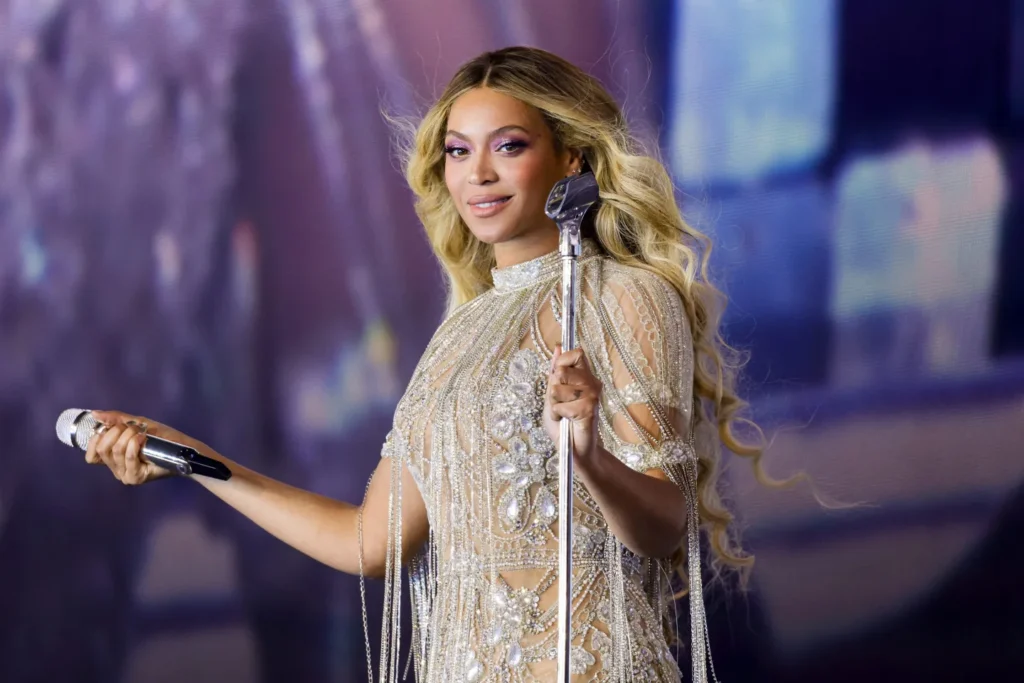Pre-sale sign-ups are done, phones are charged, and fans are eagerly hoping to score tickets for Beyoncé’s highly anticipated Cowboy Carter and the Rodeo Chitlin’ Circuit Tour.
While most fans are focused on securing a spot at one of her limited shows, the meaning behind the tour’s name deserves some attention.
Cowboy Carter refers to Beyoncé’s latest Grammy-winning album, but the term Chitlin’ Circuit might raise questions for those unfamiliar with its historical significance.
From the late 1880s to the 1960s, Jim Crow laws enforced racial segregation, treating black Americans as second-class citizens.
This era forced black musicians and performers to create their own network of live performance venues across the United States, known as the Chitlin’ Circuit.
Named after chitterlings—a southern dish made from pig intestines—the Chitlin’ Circuit offered safe spaces for black artists to perform.
It became a critical platform for black musicians, comedians, and entertainers to showcase and refine their talents.
Legends such as Aretha Franklin, Diana Ross, Tina Turner, Jimi Hendrix, and James Brown all performed on this circuit.
Historian Mia Bay, a Professor of American History at Cambridge University, highlights the circuit’s importance.
“The black stars of the day would travel the circuit. It was vital in sustaining their careers and allowing them to make a living in music.”
Beyond its impact on performers, the Chitlin’ Circuit also boosted black communities by drawing crowds to black vacation spots and local theaters.
These venues became thriving hubs of culture and entertainment during segregation.
A Personal Connection for Beyoncé
Beyoncé has a long history of celebrating black culture and performers.
Mia Bay believes Beyoncé’s Texas roots—where segregation once ran deep—may have influenced her decision to reference the Chitlin’ Circuit.
“It’s a direct reference to how she grew up and how she thinks about American history,” says Prof. Bay. “It was a communal circuit, and I think she has a nostalgic connection to it.”
A Modern Tribute to Black Music History
The Cowboy Carter and the Rodeo Chitlin’ Circuit Tour will visit notable Chitlin’ Circuit cities like Houston and Chicago.
According to music history content creator Nat Brown, this limited eight-city tour mirrors the intimate and fleeting nature of the original Chitlin’ Circuit.
“It’s a very small tour,” says Nat. “Historically, the Chitlin’ Circuit had only about seven to 10 stops.
If you were lucky enough to catch a performer, great. If not, they’d already moved on to the next town.”
Nat believes the tour’s title is meant to educate younger generations about this vital chapter in black music history.
Just as Beyoncé’s Renaissance album paid homage to black and queer influences on house music, Cowboy Carter delves deeper into the forgotten roots of black American musicians.
“I think it’s about bringing something old and making it new again,” Nat explains.
“It’s about sharing cultural experiences and creating a bond between generations. That’s what Beyoncé is aiming to revive with this tour.”
With Cowboy Carter and the Rodeo Chitlin’ Circuit Tour, Beyoncé continues her mission to honor black music’s rich legacy while introducing a new generation to its history and significance.
Fans lucky enough to secure tickets will not only witness a spectacular show but also be part of an important cultural experience.
Also read: General Qamar Javed Bajwa Net Worth
